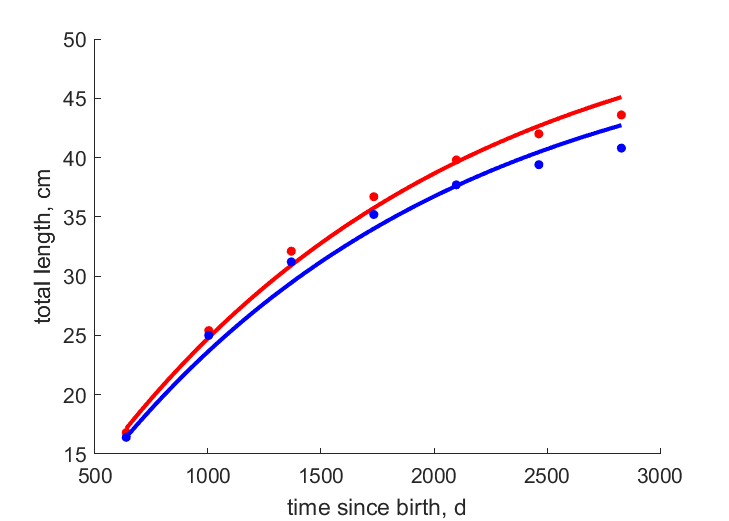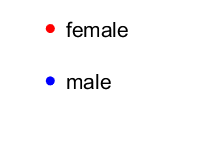Predictions & Data for this entry
| Model: abj | climate: Dwa, Dfa | migrate: Mp | phylum: |
| COMPLETE = 2.5 | ecozone: THn | food: biCi, piCvf | class: |
| MRE = 0.021 | habitat: 0iFr, 0iFl, 0iFe | gender: D | order: |
| SMSE = 0.001 | embryo: Fnm | reprod: O | family: |
Zero-variate data
| Data | Observed | Predicted | (RE) | Unit | Description | Reference |
|---|---|---|---|---|---|---|
| ab | 15 | 14.29 | (0.04762) | d | age at birth | fishbase |
| am | 1.058e+04 | 1.042e+04 | (0.01524) | d | life span | fishbase |
| Lp | 36 | 36.08 | (0.002181) | cm | total length at puberty for females | fishbase |
| Li | 107 | 107.1 | (0.001033) | cm | ultimate total length | fishbase |
| Wwb | 0.00038 | 0.0003884 | (0.02211) | g | wet weight at birth | Aart2007 |
| Wwp | 430 | 429.7 | (0.0006704) | g | wet weight at puberty for females | fishbase |
| Wwi | 1.13e+04 | 1.124e+04 | (0.00494) | g | ultimate wet weight | fishbase |
| Ri | 1677 | 1686 | (0.005326) | #/d | Reprod rate max size | fishbase |
Uni- and bivariate data
| Data | Figure | Independent variable | Dependent variable | (RE) | Reference |
|---|---|---|---|---|---|
| tL_f |   | time since birth | total length | (0.02224) | HeRuds2005 |
| tL_m |   | time since birth | total length | (0.03381) | HeRuds2005 |
Pseudo-data at Tref = 20°C
| Data | Generalised animal | Sander vitreus | Unit | Description |
|---|---|---|---|---|
| v | 0.02 | 0.01502 | cm/d | energy conductance |
| p_M | 18 | 20.57 | J/d.cm^3 | vol-spec som maint |
| k_J | 0.002 | 0.002112 | 1/d | maturity maint rate coefficient |
| k | 0.3 | 0.5369 | - | maintenance ratio |
| kap | 0.8 | 0.958 | - | allocation fraction to soma |
| kap_G | 0.8 | 0.8002 | - | growth efficiency |
| kap_R | 0.95 | 0.95 | - | reproduction efficiency |
Discussion
- Males are assumed to differ from females by {p_Am} only
- Temperatures are guessed
- mod_1: males have equal state variables at b, compared to females
Bibliography